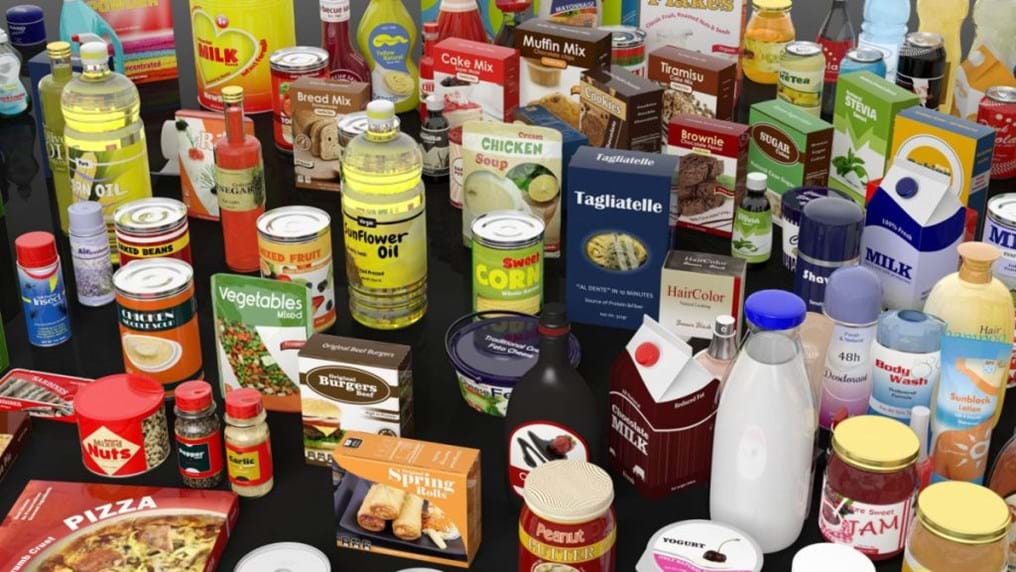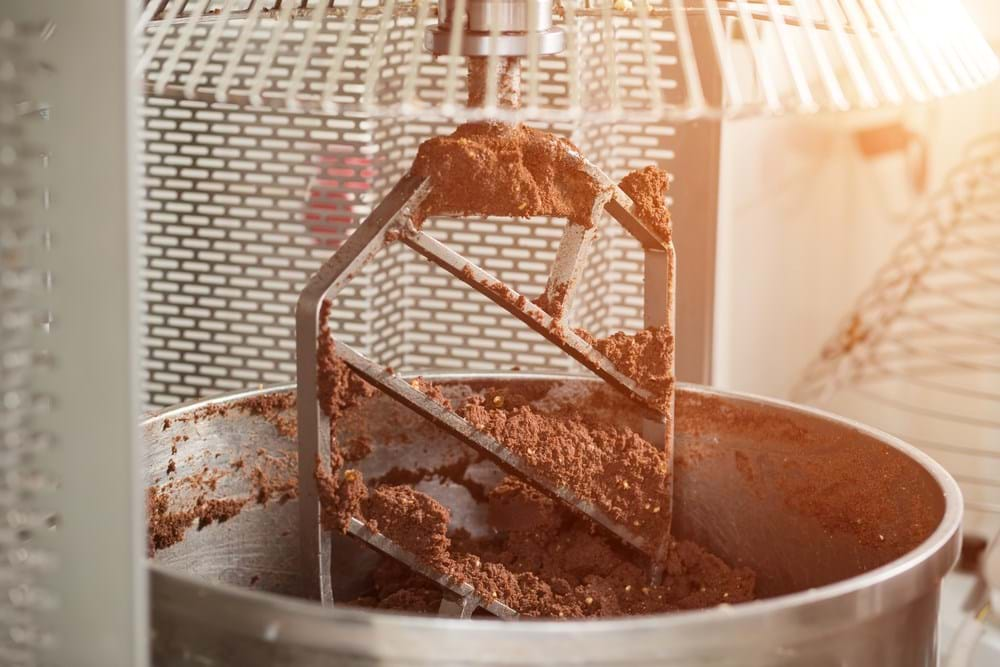Meet a difference maker in…. health and wellbeing – Fotis Spyropoulos

13th September 2022
In this blog series, which is part of our Sustainability Hub, we’re speaking to chemical engineers across the world making a difference to make sustainable practices and products a reality and more accessible to all for the wider benefit of our society and globe.
In today’s blog, Fotis Spyropoulos shares his work researching ways to create foods that are healthier - by reducing fats, sugar, and/or salt - but that still ensures their compounds and components are structurally-sound to make them commercially viable, as well as tasty and appealing for consumers. He gives an insight into the challenges he faces, as well as the critical chemical engineering skills to provide solutions ensuring the products hit the shelves.

Name: Fotis Spyropoulos
Job title and organisation: Reader in Formulation Engineering, University of Birmingham, UK
Bio: Following a degree in Chemical Engineering at the University of Patras, Greece, and a Master’s of Science (MSc) in Food Biotechnology at the University of Ulster, Northern Ireland, Fotis received a PhD in Chemical Engineering from the University of Birmingham, UK.
He is currently a Reader (Associate Professor) in Formulation Engineering in the School of Chemical Engineering at Birmingham, and his research interests focus in the areas of novel emulsification processes, formulation engineering of emulsions and soft solids and encapsulation and release technologies.
Fotis is also a member of the Peer Review College of the Engineering and Physical Sciences Research Council, a member of the editorial board for the Food and Bioproducts Processing and the Journal of the Science of Food and Agriculture journals. He is also a committee member on IChemE’s Food and Drink Special Interest Group and a Fellow of the Higher Education Academy.
Tell us briefly about your work in health and wellbeing?
My research focuses in the areas of formulation engineering of emulsions and soft solids and novel emulsification processes, predominantly within the food sector. With direct relevance to health and wellbeing, we’re developing the fundamental understanding that is necessary to successfully formulate foods that are healthier (for example, less salt, sugar and/or fat), but that are also enjoyable to eat. Types of such foods include dressings (such as mayonnaise), snacks (including crisps), dairy products (for example, ice cream) and confectionery (such as cakes).
The projects that we’re working on can range from three months to five years, depending on scope and industry requirements. A short project tends to involve investigating a single food product type in terms of providing a solution to a specific industry (processing or formulation) challenge/problem.
Longer projects are designed to deliver the fundamental understanding required to address an array of challenges, often associated with a range of food product types. So, while short projects can indeed provide a unique solution to a specific problem, longer-term research work aims to deliver a scientific “tool-box” and associated know-how that industry can then adopt/utilise to address a range of existing (but also future) challenges.
As such, translation of our research into new products can be direct, as well as indirect. In either case, such translation would obviously involve further work by our industrial collaborators (for example, in terms of scale-up and sensory evaluation), which means that it can take anything from one to 10 years for a new product to become available on the shelves.

Tell us what made you decide to investigate this area?
I believe that research in the foods, and particularly the health and wellbeing area offers a more tangible route for me to visualise the impact of what I do, which in turn acts (at least in my case) as significant motivation to keep going.
Although this fuels my curiosity to persist with, and expand, my activities, I should also be honest in acknowledging the huge impact that other engineers (and non-engineers) have had on me; at least in terms of attracting me to the area in the first place. I feel that working with, for and around some genuinely amazing scientists was (and continues to be) a huge source of inspiration for me.
What is unique about your project and how do you feel it is making a positive difference to SDG3 (Good health and wellbeing)?
Reducing/substituting components such as salt, sugars and/or fats in foods, to produce healthy/healthier alternatives, is far from a trivial task. The main challenge to address is that these constituents tend to have a multitude of functionalities within the food structure, beyond a simple contribution to taste.
Salt and/or sugar tend to bind water, thus reducing water activity (i.e. the amount of “free” water that is available for microbial growth) and ultimately prolonging product shelf-life. Similarly, fats have a significant structuring role in products such as ice cream and chocolate, affecting the melting properties of the foods as well as some of their key sensory attributes, like spread-ability, hardness, and mouth-feel.
Our research is exploring unique approaches to reduce these components, while ensuring that the resulting food structures still perform at the level that is required for them to become commercially viable options for the replacement of their unhealthier counterparts.
What’s next for you, your project, and your research group in terms of sustainable development?
Firstly, we must continue carrying out and delivering outstanding research, so we can attract talented scientists to join us and great collaborators to work with us.
I think there is still some work to be done in terms of truly realising the potential and maximising the impact of our research. This would certainly also mean working harder to move our research findings closer to industrial application(s). A good example of this would be to successfully realise the industrial scale production of complex microstructures such as double emulsions. Adopting a double (water-in-oil-in-water) emulsion approach could offer an almost imperceivable reduction to the fat/oil content of a simple (oil-in-water) emulsion, as some of the oil droplet volume is internally replaced by water.

As can be seen in this microscopy image of a water-in-oil-in-water emulsion, each oil droplet dispersed in water contains within it a large number of smaller water droplets. In terms of mass, the overall oil content of the simple oil-in-water emulsion precursor has now (by adopting a double emulsion approach) been reduced by 20%.
Finally, I am also very interested in exploring opportunities to translate (some of) our fundamental work into non-foods areas, such as pharmaceutical and personal care products.
How do you think your chemical engineering skills and expertise contributed to the success of this project/work?
The technical expertise that can be acquired through exposure to a classical chemical engineering education environment has been extremely valuable, both in terms of understanding and then overcoming the challenges we encounter in our research.
For example, manipulating crystallisation at an industrial scale requires understanding and controlling a set of core chemical engineering principles, including mass and heat transfer, and mixing phenomena. Such chemical engineering expertise is crucial to chocolate production. For example, chocolate’s distinctive characteristic of “melting in the mouth” when consumed, can only be achieved if the crystallisation process yields a specific cocoa butter crystal form (β-polymorph). Therefore, lowering the fat content in chocolate (while at the same time delivering a product with the same physical and sensory characteristics) becomes a very complex (but highly interesting) chemical engineering challenge.
What I feel has proven to be even more important however, is the critical-thinking ‘attitude’ that the discipline in general instils into engineers.
In my personal experience, the level of flexibility, tenacity, creativity and ingenuity that the chemical engineering doctrine bestows and then directs towards problem-solving, has been the most valuable skill set I have developed.
Visit our Sustainability Hub to learn about others making a difference in our Sustainability success stories. There you can also access a suite of new on-demand training courses and knowledge resources to embed sustainable principles and practices into everyday work and life.